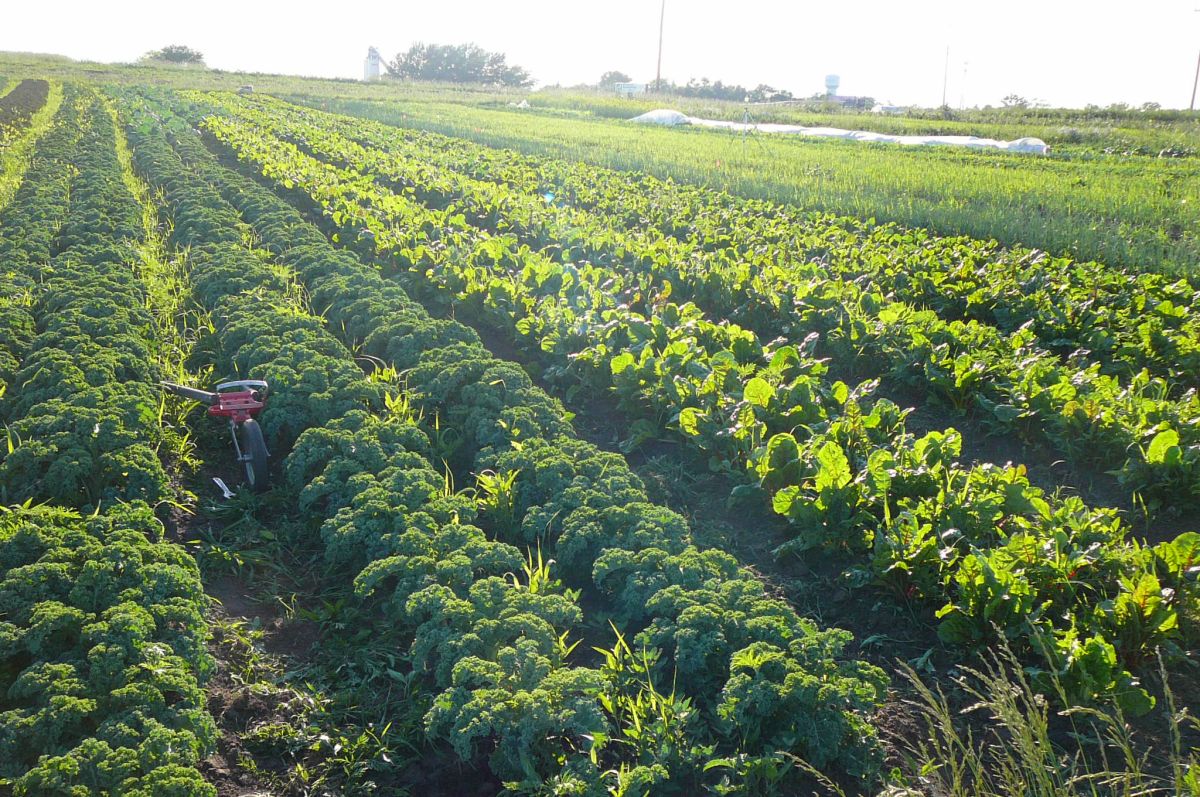
The complexity of organic farming requires farmers to have a very high level of knowledge and skills. But exchange on organic farming techniques remains limited. The OK-Net Arable project aims to facilitate co-creation of knowledge by farmers, farm advisers and scientists to increase productivity and quality in organic arable cropping all over Europe.
OK-Net Arable is coordinated by IFOAM EU and involves 17 partners from 13 countries all over Europe. The Organic Research Centre is the UK research partner. The project is financed by Horizon 2020, the EU’s main funding instrument for research and innovation. OK-Net Arable is one of the first four so-called thematic networks funded under the umbrella of the European Innovation Partnership for Agricultural Productivity and Sustainability (EIP-AGRI). This EU policy instrument aims to foster innovation by connecting farmers and researchers.
OK-Net Arable has three objectives:
1. The project will synthesize the scientific and practical knowledge available about organic arable farming and identify the best methodologies for exchanging this knowledge. Based on this easily understandable advisory material will be developed.
2. It will create a European network of farmers to exchange experiences and discuss the advisory material developed by the project.
3. Finally, the project will create an online platform offering evidence-based advisory material as well as facilitating farmer-to-farmer learning. This platform will be a virtual meeting place for farmers, advisers and researchers that would otherwise not be able to meet.
OK-Net Arable takes a very innovative approach in that in all stages of the project, farmers play a prominent role. Much more than being asked for advice, farmers contribute to a process of co-creation of knowledge throughout the project.
Context of the project
Organic farming in the EU has recorded substantial growth over the last decade, both in terms of production and market demand. The organic area in the EU has almost doubled since 2004; 5.7% of EU agricultural land is now under organic management. Organic farming is a productive form of agriculture which combines food production with care for the environment.
However, concerns have been raised whether organic farming is also productive enough. On average, organic yields are 20-25% lower than yields of conventional farms. In addition, organic yields vary a lot compared to yields in conventional farming. This is often due to the level of knowledge of the farmer. Evidence shows that the more experienced the farmer is, the smaller the yield difference with conventional farms.
Indeed, organic agriculture works as a complex system which requires a very high level of knowledge. But knowledge exchange between organic farmers and technicians remains limited. Also the knowledge gap between organic farmers across the EU is considerable. By promoting co-creation and exchange of knowledge, the OK-Net Arable project therefore has significant potential to increase productivity in organic farming.
